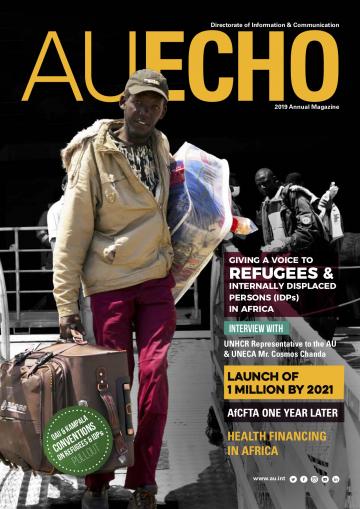Key Resources
- December 23, 2019
- December 23, 2019
- November 26, 2019
- July 19, 2019
- July 08, 2019
- July 06, 2019
-
June 06, 2019
Children are an integral part of our society. They are the foundations of future generations.
-
April 29, 2019
8 High-Level Dialogue The Year Of Refugees, Returnees And Internally Displaced Persons Towards Durable Solutions To Forced Displacement In Africa
-
February 07, 2019
Media Tips for the 32nd AU Summit
February 2019
Addis Ababa,
Ethiopia
----
Information and Communication
African Union Commission06 February 2019
Theme and dates of the Summit
2019 Theme: “The year of refugees, returnees and internally displaced persons: Towards durable solutions to forced displacement in Africa”
Dates and venues -
February 04, 2019
Africa takes a step ahead in ensuring meaningful implementation of Women Peace and Security Agenda in Africa.
A continental framework for reporting and monitoring on the implementation of Women Peace and Security Agenda will officially be launched on Monday February 4, 2019 at the United Nations, Economic Commission for Africa.
The Tool that has been in the making for the past 4 years, was adopted last year - January 30, 2019
- January 30, 2019








